
In the countryside, the people still rage against feudal lords who act like kings in their fiefdoms. Those who feed the country are starving as foreign masters exploit their labor and profit off of the fruit of their fields. Revolt is the only answer, because the people have nothing to lose but their semifeudal chains.
The Philippines is not entirely feudal, nor can we truly call ourselves industrial capitalist. Stuck between our feudal past and foreign exploitation, we are stuck in a limbo called semifeudalism – a limbo that has left us in a never-ending cycle of misery.
READ: http://bit.ly/3WuQ41A
The country’s feudal characteristics are easy to see. The peasant masses continue to be the most populous class in the Philippines and remain a critical force in the Philippines’ economic growth. Operating on the country’s main source of production, more than 13.5 million hectares of land for agriculture, they continue to suffer from a system of sharing lands, low farmer wages, and a handful of landlords profiting from them.
Under the control of certain landlords, agricultural laborers toil for slave wages, while small-scale farmers are forced to take loans at absurd interest rates just to make ends meet. Those who labor and bear the expense of production can barely feed their families, while the majority of earnings go to landlords who do nothing but exploit the farmers. These conditions, instead of improving, are only worsening as landlords strengthen their hold over their areas and even expand their territories through land-grabbing.
But because of imperialism, this feudal nature is exploited by foreign superpowers, especially the United States. While the masses are kept poor by empowered landlords and unfair trade, imperialists benefit from cheap agricultural products and raw materials.
READ: http://bit.ly/3QOT1cm
This exploitation has also directly prevented us from building capital. Our economy – whether in the agricultural, industrial, or service sectors – remains largely dependent on foreign imports. We still lack critical industries required to be considered industrialized, such as chemical production, machine manufacturing, and capital goods. Our raw resources are merely extracted and processed in foreign countries before being resold to us with exorbitant mark-ups.
This is why we continue to rely on foreign resources and goods. Foreign monopolistic corporations run all of these types of semi-manufacturing or processing. These have the advantage of having export processing or special economic zones, which are exploited for tax avoidance and smuggling not just knock-offs but also finished goods.
In this semifeudal hell, crisis is inevitable.
The Semifeudal Crisis
The Filipino people, whether in the countryside or in the cities, suffer under this semifeudal crisis.�
In the countryside, those who till the soil cannot call the land their own. According to IBON foundation, a third of the landowners control over 80% of the country’s land. Big names such as the Cojuangco’s, Ayala’s, and Araneta’s still own massive swathes of land despite years of promised land reform.
But the land crisis is more than just the lack of land; these landlords are also doing all that they can to deny farmers their right to own land.
While the Department of Agriculture claimed that the Comprehensive Agrarian Reform Program (CARP) and its extension (CARPER) had redistributed 84% or 5 million hectares of its target land, this has not materialized in the uplifting of farmers. Both through legal loopholes and outright violence, landlords remain in control of their Haciendas.
Take the recent case of Hacienda Tinang in Tarlac. The farmers in Hacienda Tinang have been land reform beneficiaries since 1995. 27 years later, they are still grappling with the the Villanueva dynasty who have done everything to deprive them of their land. Despite the Department of Agrarian Reform granting them 236 Certifications of Land Ownership Award in 2016.
As the Tinang farmers and their supporters held a Bungkalan or cultivation activity – typically done by numerous farmers as the last option to claim ownership of land assigned to them during the agrarian reform program – the police violently dispersed them, arresting 83 individuals on trumped-up charges.
This has been the case for thousands of others fighting for the farmer’s right to land. From the agrarian advocates in Congress stonewalled by chambers filled with landlord families to those mercilessly murdered in the Mendiola massacre, the semifeudal crisis has led to a decade-long peasant struggle for land in the countryside.
But even in the cities, we see the effects of semifeudalism.
The chronic severity of unemployment, lack of job opportunities, and slow economic growth are all manifestations of the country’s semifeudal nature.
While countries like Vietnam are now major producers of different electronic products, machinery, and telecom equipment, the Philippines is still in limbo. Without strong industries to depend on, the country is forced to turn towards fickle non-industrial sectors such as tourism and the service industry.
As Prof. Jose Maria Sison pointed out in his analysis of semifeudalism, if the Philippines was a newly-industrialized country like Japan or Korea, we would have a labor shortage and unemployment would not be a major problem. But in a country where workers in the provinces are forced to flock to Manila to find jobs, this is hardly the case.
This shortage is highlighted even more by our policy of labor exportation. The fact that a large portion of the working force must leave their families to seek work overseas highlights the seriousness of the Philippine economy’s undeveloped and semifeudal nature. It is reasonable to infer that persons who seek and accept work overseas do so because jobs are scarce in the Philippines, and the jobs that do exist do not pay enough to make ends meet.
Overall, the country’s semifeudal nature has created an economy that cannot hope to sustain the Filipino, and only furthers imperialist interests.
Together, this crisis in the cities and the countryside is why we remain under the yoke of poverty. The people, struggling for so long under feudalism, are left with few options. In their desire to end this semifeudal crisis, they have no recourse but revolution.
Crisis generates resistance
These recurrent crises can only be resolved by breaking our feudal ties.
First, agrarian reform is required. It relieves the unemployment pressure and increases agricultural production and productivity, It also helps to enhance the socioeconomic situations of landless farmers and the Philippines’ political growth by including the landless in policymaking and distributing substantial private landholdings to the landless. Most importantly, it solves a crucial injustice of the semifeudal system: that those that feed the people are hungry, while those who do nothing but hoard their possessions are full.
Second, we must fight for national industrialization so that the land may be returned to its original owners. We would become more self-sufficient, create millions of jobs, and have an economy that actually serves the interest of the people instead of depending on foreign imports and labor exportation.
But then again, It is still the same fight as before. Landlords, powerful capitalists, power-hungry politicians, and all-powerful; worldwide corporations continue to hold enormous authority. They will do everything that they can to preserve the semifeudal system that has allowed them to act like royalty for so long,.
This must be met with revolt.
We must demand, through tireless struggle, the lands that they have deprived from these farmers for so long. We can not be content with their promises of reform, because they have time and again proven that these promises ring hollow.
Likewise, we must strengthen the worker’s movement and demand pro-people development of local industries. We will demand jobs and decent wages for all, and no longer act as cash cows for imperialist masters.
We must build a united from – of the students in the universities, the workers in the cities, the farmers in the countryside, and everyone who has suffered under the semifeudal crisis. We will reclaim rights of the poor, marginalized, and dispossessed and demand accountability from those who have oppressed them for so long.
Only in this collective struggle can we achieve lasting development. Our liberation from these chains is necessary, and so, through collective struggle, it will be made inevitable.
Featured image courtesy of Manila Today

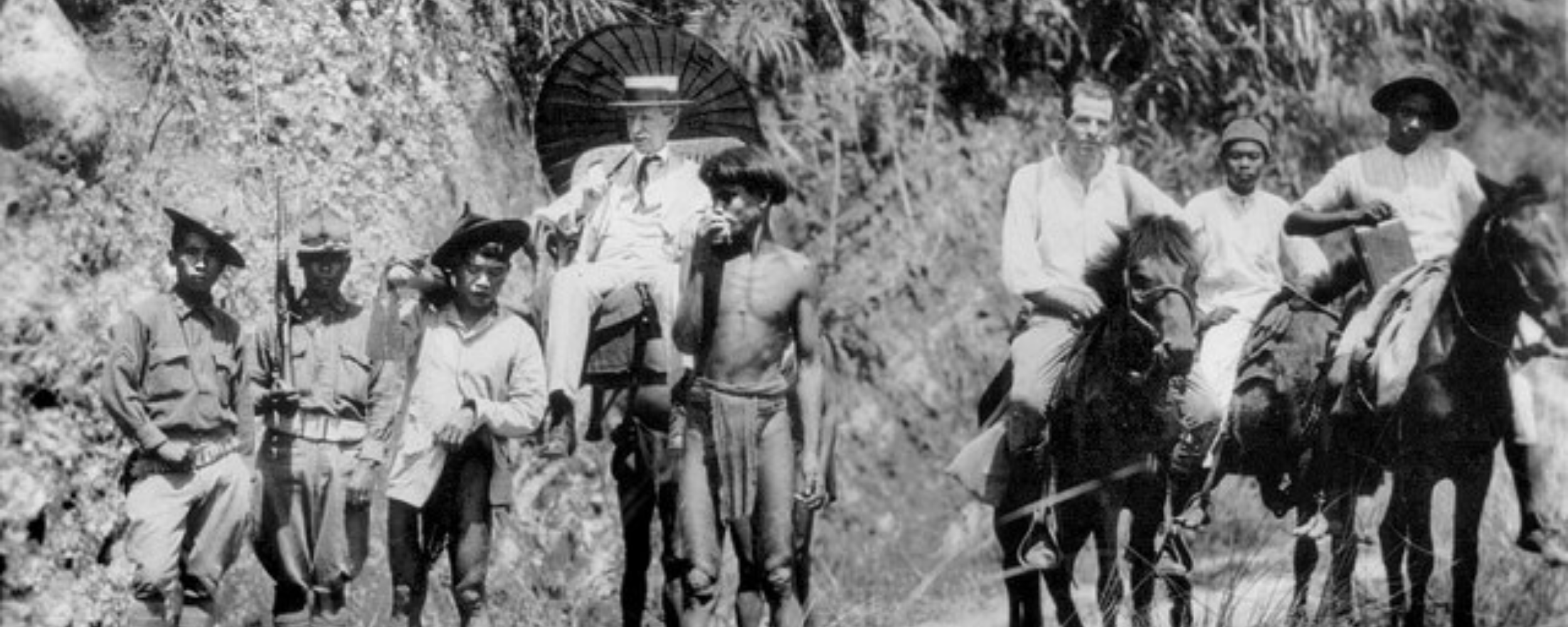

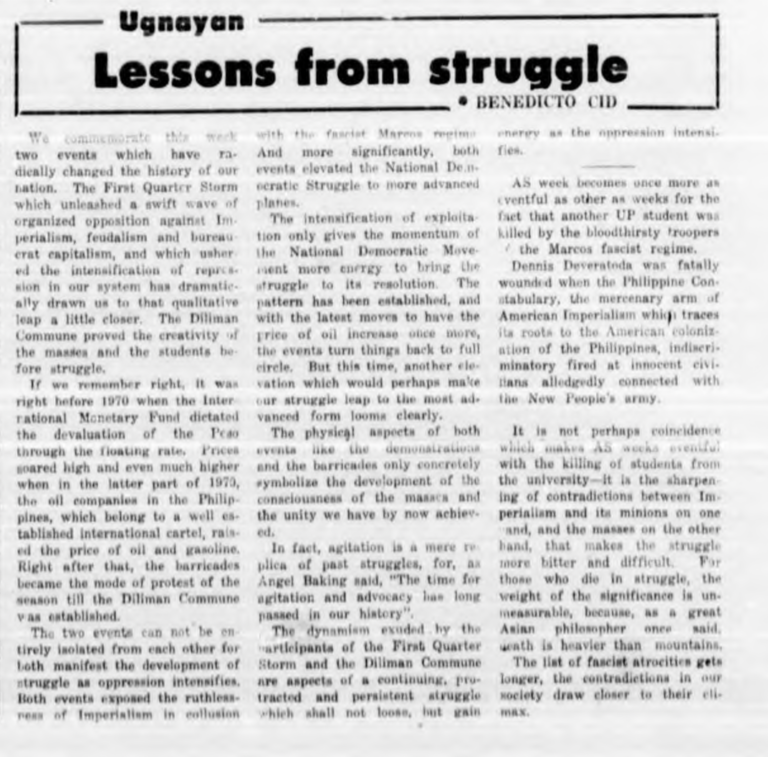

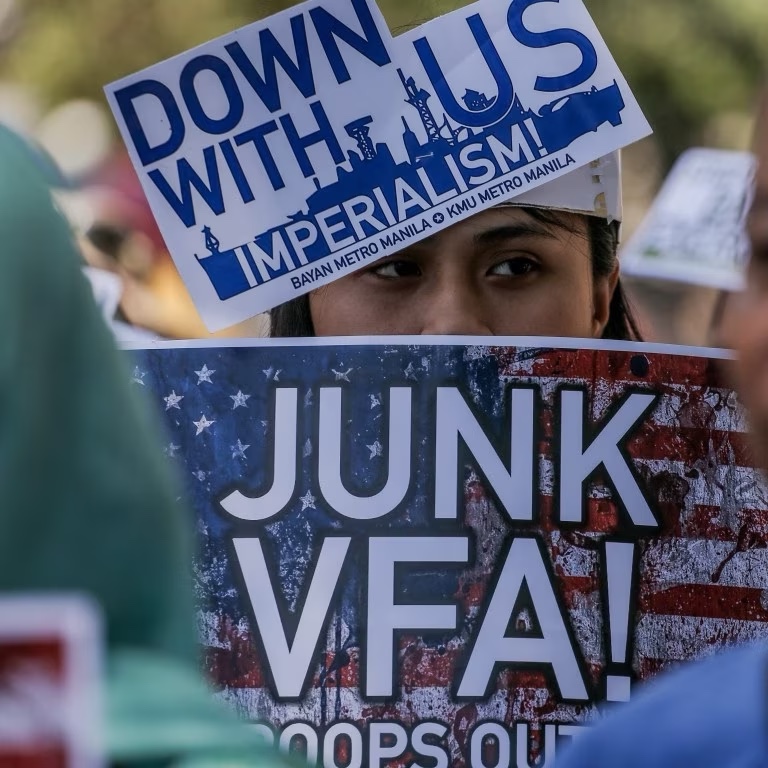
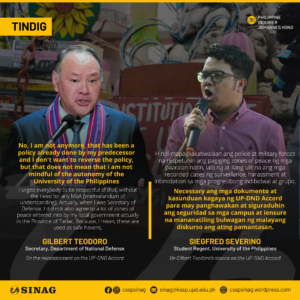
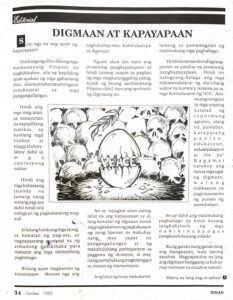
Hi my loved one! I want to say that this article is awesome, nice written and come with almost all vital infos. I抎 like to peer extra posts like this .